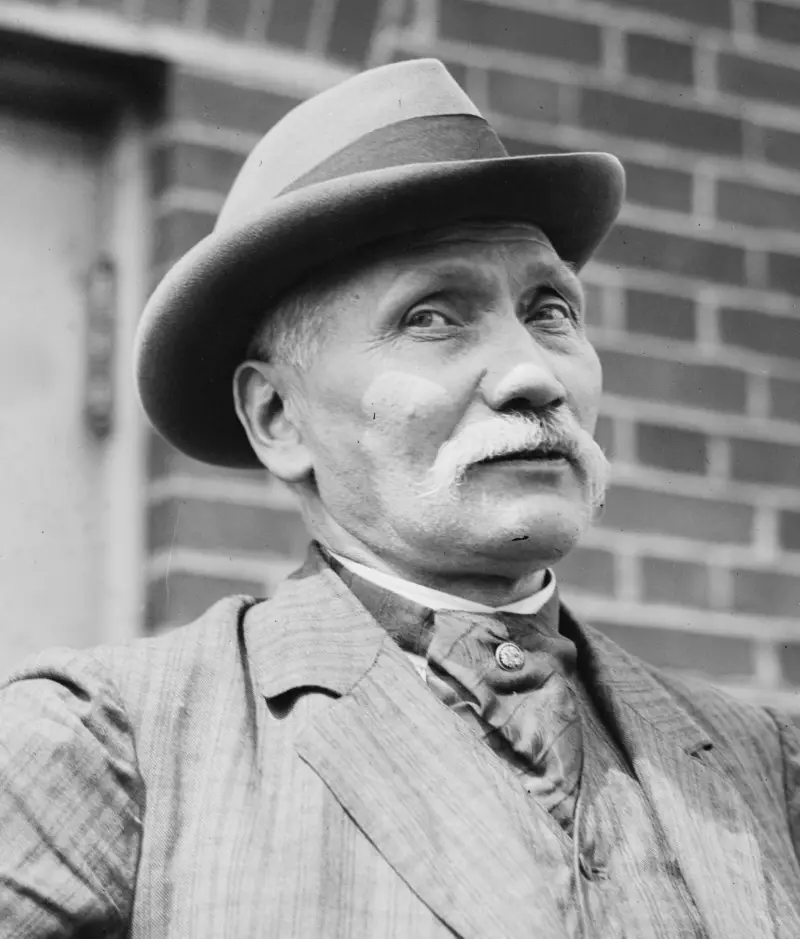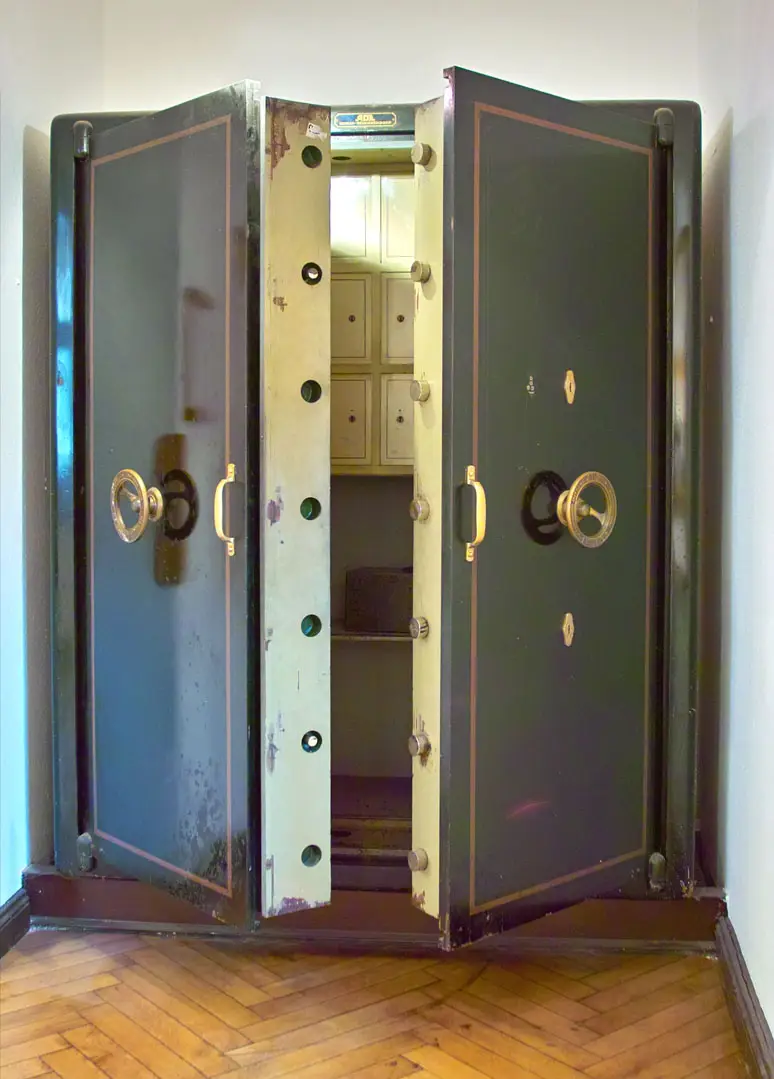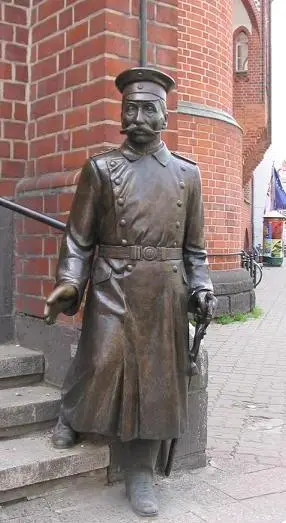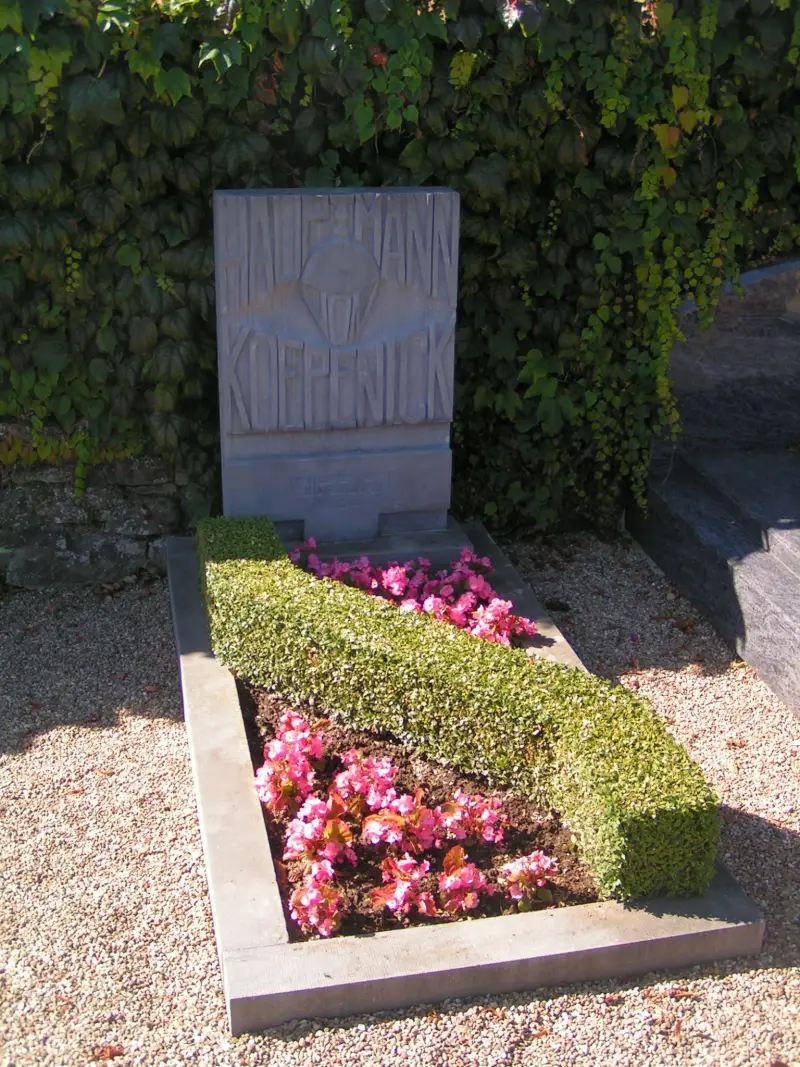Wilhelm Voigt - the man who robbed the city treasury

Wilhelm Voigt. You can’t even say that a person spent half his life in prison
Wilhelm Voigt was a shoemaker from 57th century Prussia who was famous for his fraud. A XNUMX-year-old man was tired of life, existing at the limit of his capabilities, until a brilliant idea came to his mind.
life of crime
Wilhelm Voigt was born in Tilsit (Prussia, now Sovetsk) in 1849. He followed his father's example and became a shoemaker. But it didn't seem to interest him much. The guy preferred the thief's trade. True, I did not achieve success in it in my youth. He first went to prison at the age of 14. Term – 2 weeks for theft. This did not straighten the boy’s mind - he spent 27 of the next 42 years behind bars. He was unable to steal, rob, or forge documents.
After his last prison sentence, he took a job in a shoe factory in Berlin. On his way home from work, Wilhelm passed a second-hand goods store, in the window of which was displayed the uniform of a captain of the guard. The man admired the uniform because, like most residents of Prussia during the time of Kaiser Wilhelm, he showed respect for the military. Voigt bought the uniform.
Good try
One evening our hero decided to take a walk in his military uniform. He was amazed at how everyone showed politeness to him, because usually no one considered him a person, and Wilhelm often got it in his life and at work. He realized that he could use this politeness to his advantage. So a brilliant plan was born in his head.
One day while walking in October 1906, he encountered several soldiers who immediately snapped to attention and raised their visor. William ordered the soldiers to line up and follow him by “Special Order.” They marched to the Köpenick city hall and arrested the mayor and treasurer. Voigt accused them of mysterious “administrative violations.”
The readiness of all Prussians to follow orders, especially those given by a man in uniform, was such that the city authorities complied and handed over the city cash, which the fake captain asked for verification.
On arrival, the captain ordered the soldiers to load their guns and fix bayonets; and, to the amazement of the population, he and his small detachment occupied the town hall, the premises of which were carefully guarded. He acted on orders from the Emperor's cabinet, which the police obeyed without any further explanation. Voigt ordered the offices of the mayor and treasurer to be opened for him.
The population gathered in the square in front of the town hall while gendarmes held back the crowd. The captain ordered the mayor to hand over to him the municipal treasury, which amounted to 4 marks (today, approximately 002 million rubles), signing the name of the director of his last prison.
Wilhelm then ordered several of "his" soldiers to take the mayor and treasurer to the military headquarters of Berlin for interrogation. The rest of his squad was to guard the city hall for half an hour and then return to the barracks.
And “Captain Köpenick,” as he came to be called, went to the railway station with his bag of money, changed into civilian clothes and disappeared.

The safe from which Voigt stole 4 francs
Life after glory
The police quickly realized that the treasury of the city of Köpenick had been cleaned out. On October 17, 1906, the German police published the following description of a most unusual villain:
It took Wilhelm Voigt ten days to be caught. He had no luck.
The trial attracted a lot of attention, and Voigt aroused great sympathy when he spoke from the witness stand. history grief that ran like a black thread through his life.
The judge was lenient given Voigt's criminal history. He sentenced the impostor to four years in prison, and this was where the story of Captain Köpenick should have ended. But no, otherwise I wouldn't have shared it.

Monument to our hero next to the town hall, which he robbed
The story of the robbery spread throughout the world and became an international meme, as they say now. Europeans liked to joke about the stereotype of “the German fetish with uniforms and the unquestioning submission of its citizens to uniformed authorities.” They say that when Kaiser Wilhelm II, a man who had no sense of humor, heard this story, he burst out laughing. As soon as the public learned about the shoemaker's daring trick, he became something of a folk hero. After two years of imprisonment, the Kaiser pardoned his namesake.
After his release, Wilhelm learned that a rich widow, who had a liking for him, had given him a handsome pension so that he would no longer have to rob in order to survive. He received marriage proposals from more than 100 women. True, it is unknown whether he reciprocated anyone’s feelings.
The man capitalized on his notoriety by touring Europe and the United States with a play about his adventure. Voigt then met the writer; the result was a best-selling book entitled How I Became a Captain from Köpenick.
In 1914, our hero settled in Luxembourg and continued to perform for money in Europe. When Germany invaded Luxembourg, they found old Voigt in his famous and tattered captain's uniform. He was arrested for improper use of his uniform, but was released when they found out who it was. The Kaiser's army did not want another major disgrace.
"Captain Köpenick" died in 1922 at the age of 72. His burial place fell into disrepair. But in 1975, the Luxembourg tourist office reburied Voigt. While the funeral procession carrying his remains was on its way, it encountered a detachment of French soldiers. Their commander ordered his men to stop and honor their fallen fellow officer.

Wilhelm's grave
Information